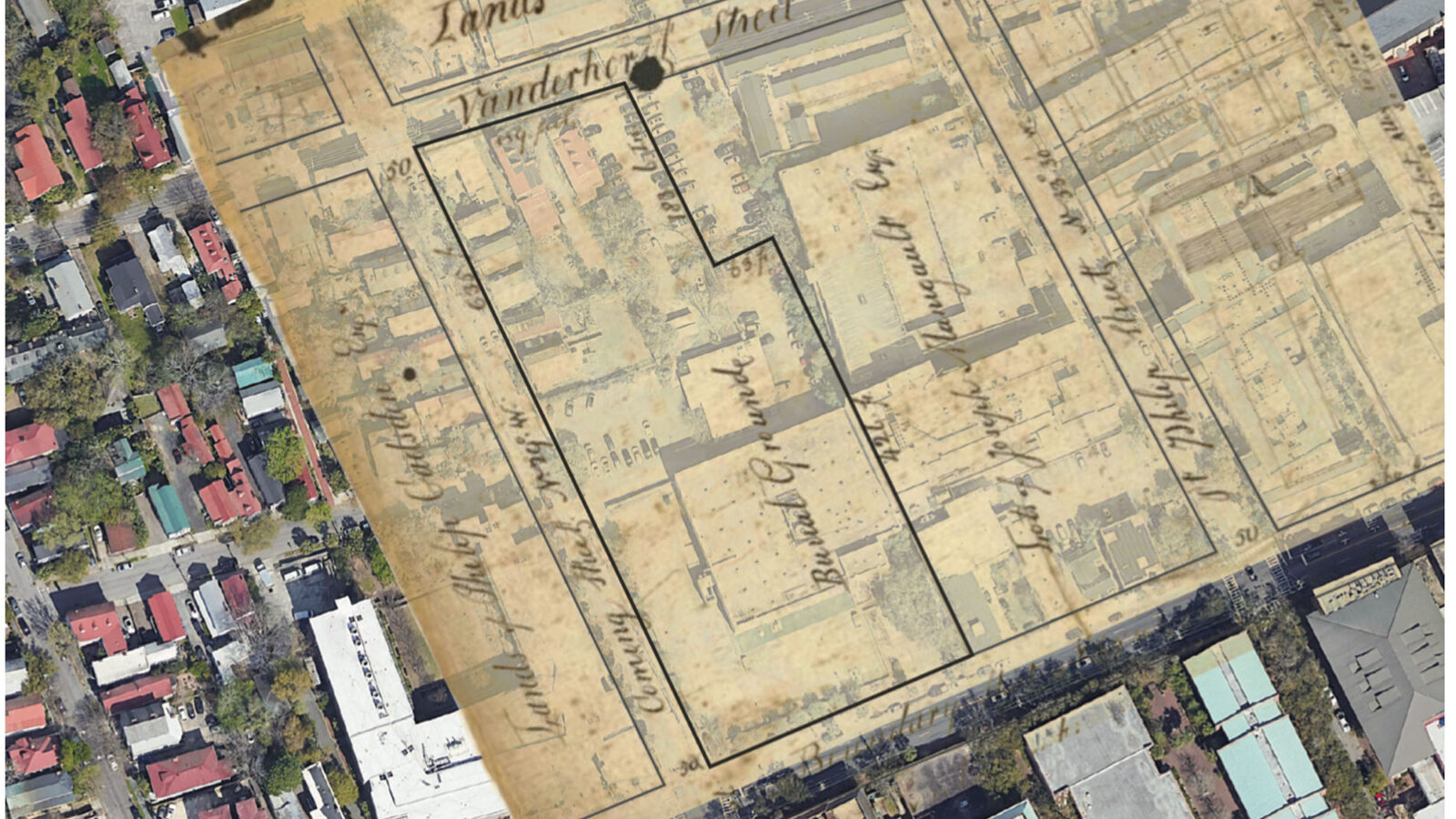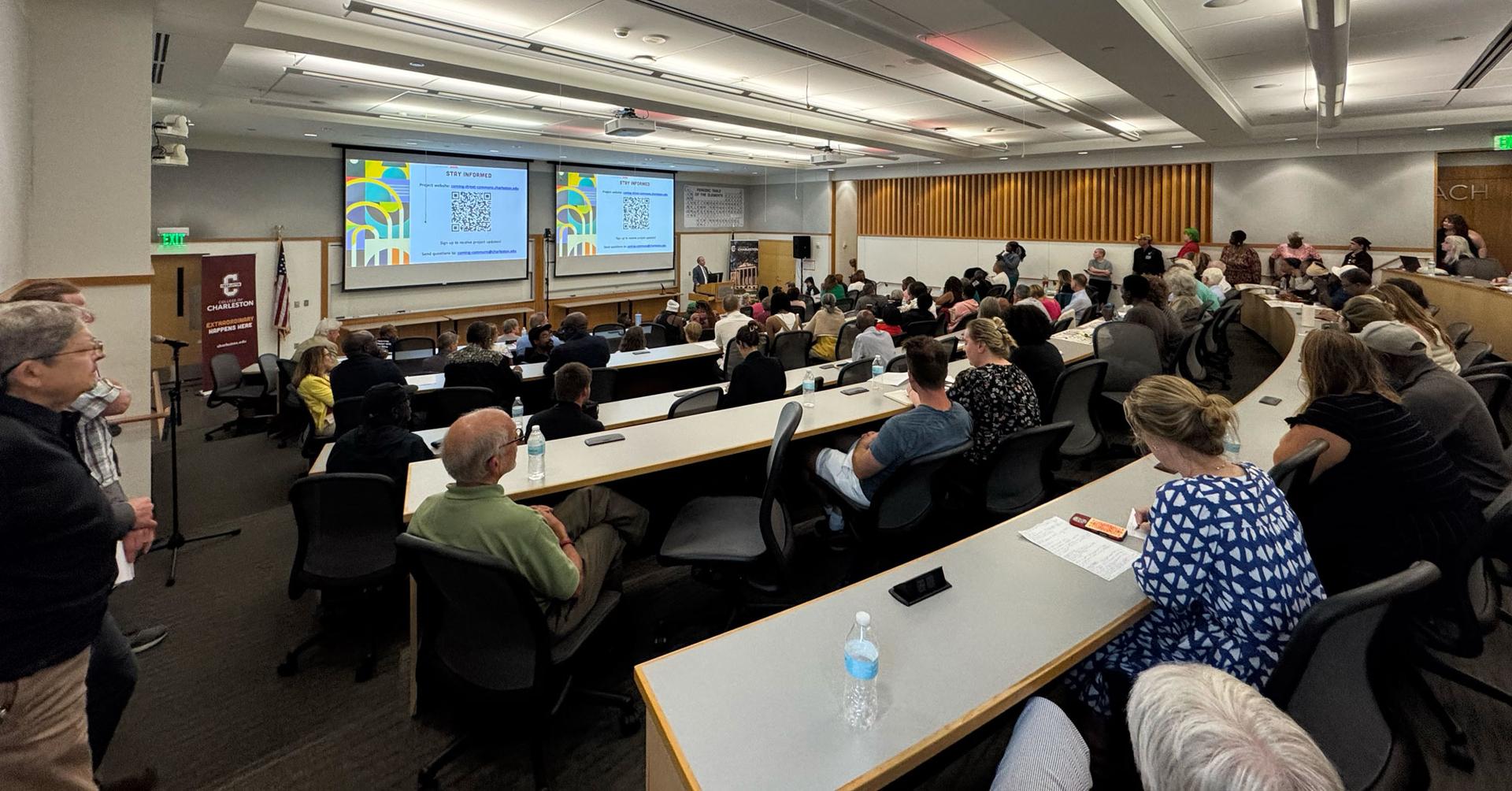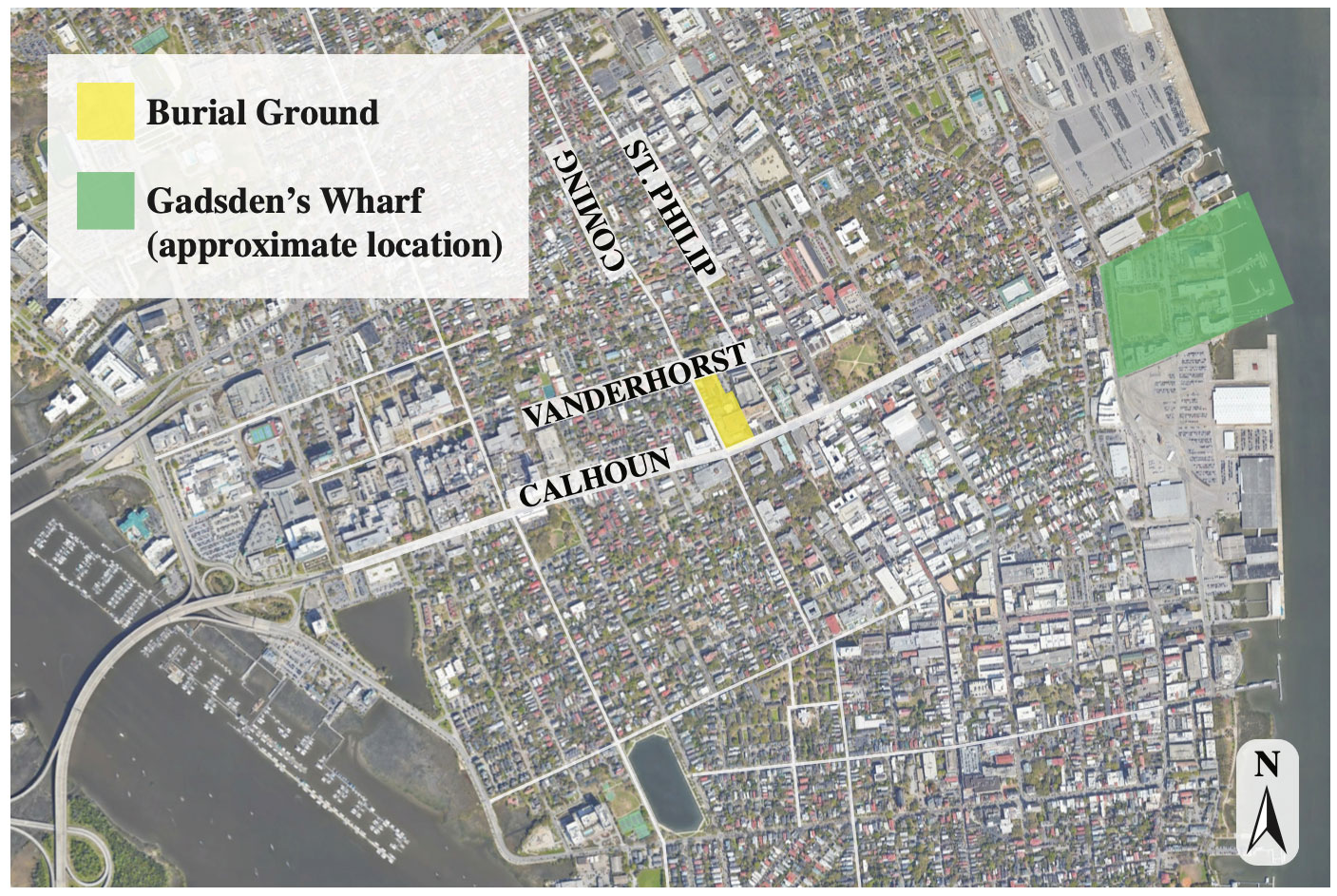Permit would allow CofC excavation of burial ground to proceed

1799 plat overlaid on current aerial of the CofC project site, which sits roughly in the center of the block along Coming Street. (Rendering via BVL Historic Preservation Research.)
We are calling on our membership to request a public hearing on The College of Charleston’s plans to excavate the large and highly significant public burial ground along Coming Street. The public has until 11:59 P.M. on Monday to provide their views to the state Department of Environmental Services.
The approval request concerns an archaeological plan that the College has submitted to the state, but not disclosed to the community. A public hearing will clarify exactly what the College is asking and how it will impact human remains located on the site, including an unexplained reference in the permit application notice to “test piles” — engineered supports driven deep underground to asses soil conditions and building loads.
The public deserves to have a voice in how demolition of existing buildings, excavation, and the treatment of burials is managed.
If 20 people request a public hearing, the community will have the opportunity to have their questions and concerns heard by state regulators. Be sure to request a public hearing so that the state can continue asking important questions about this project. The Preservation Society (PSC) also submitted a letter this week.
COMMENTS NEEDED:
OPPOSE CofC PERMIT APPLICATION
Deadline: Mon., Aug. 24 at 11:59 P.M.
Suggested language:
I am opposed to the 106 Coming Street permit application and request a public hearing to ensure important questions are answered before work commences on this sensitive site.

WHAT WE’VE LEARNED SO FAR
This complex, multiphase project has been a PSC advocacy priority in recent months, beginning with opposition to the College’s request to demolish the former YWCA building, which was unfortunately granted earlier this year.
Thankfully, the community is working to make sure critical questions about plans to impact this historic burial ground are answered. That grassroots activism was on display in the capacity crowd present for the College’s informational meeting held Aug. 4, a week before students returned to campus.
The PSC has been working alongside a community coalition known as Protect and Respect the Bodies, urging the College to follow a process grounded in descendant outreach, detailed documentation, and a thorough consideration of options before contemplating removal of the more than 4,500 bodies, by conservative estimates, that may be found underground at 106 Coming Street.
A recently released historical report commissioned by the College shows this site in an important, under-documented historical context in tumultuous late-18th-century Charleston.

Importantly, the site shares a close connection with the final years of the trans-Atlantic slave trade, which prompted a dramatic influx of captured and enslaved Africans into the Port of Charleston, including at Gadsden’s Wharf at the eastern end of Calhoun Street. Many who did not survive the voyage or died soon after are likely buried on the 106 Coming Street site.
The report also indicates that the area occupied by the College’s proposed redevelopment has experienced less ground disturbance than other more heavily developed portions of the cemetery, signaling strong potential to learn from this site despite changes over the years.
We hope you will take the time to review and digest the sobering and enlightening findings detailed in this report and share within your networks. This site presents an important opportunity to better understand Charleston’s history, a core goal of PSC’s advocacy.